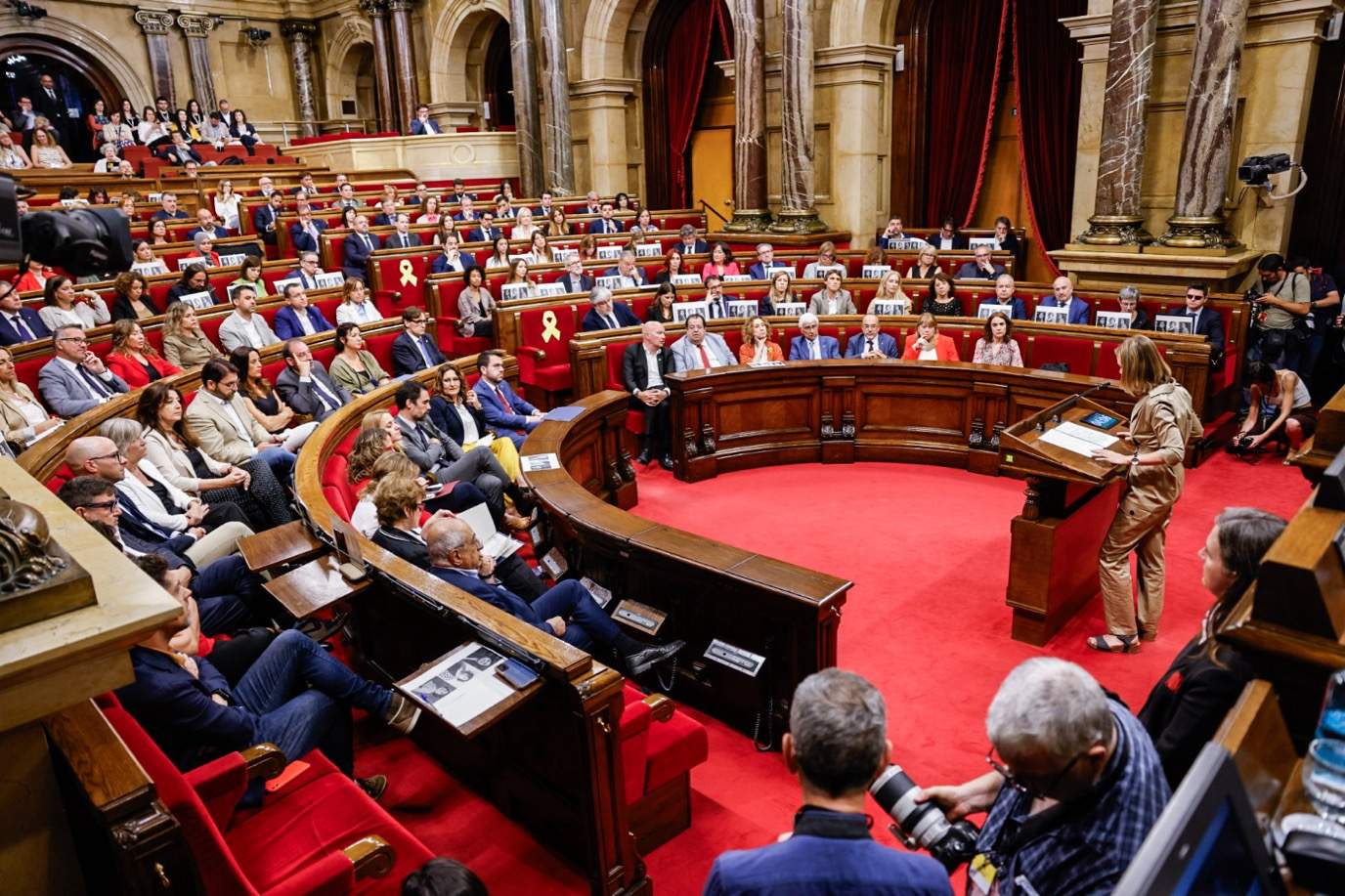The speaker of the Catalan Parliament, Josep Rull, has this Wednesday assembled the full chamber to certify the impossibility of proposing a candidate for investiture as Catalan president within the period set by law of ten working days after the constitution of Parliament. In this way, with a so-called "equivalent act to a failed investiture", the countdown clock of time remaining to avoid a repeat election has been set in motion, and thus the parties will have to reach an agreement before August 26th in order to avoid a new election on October 13th. The parliamentary groups were able to express their opinions and it was shown that there are two candidates willing to submit to an investiture vote if they reach an agreement with other parties that will allow it: on the one hand, Catalan Socialist (PSC) leader Salvador Illa has intensified his commitment to an agreement with the Republican Left (ERC) and the alternative left Comuns; and on the other, Together for Catalonia (Junts) has defended a government headed by Carles Puigdemont with the help of the Republican Left and the abstention of the Socialists.
The fact that these two options for the presidency of the Generalitat of Catalonia have floated throughout the debate focused attention on the discourse of the Republicans, which was forceful and tough against both the PSC and Junts. The leader of the ERC parliamentary group, Josep Maria Jové, urged the two parties to take on the investiture vote "as many times as necessary" and placed the pressure to avoid a repeat election on the MPs led by Salvador Illa and Carles Puigdemont: "To find ourselves facing October 13th is only in their hands."
PSC and Comuns, same message: "Either a progressive pact or a repeat election"
As he has been doing in recent days, PSC leader Salvador Illa wanted to take advantage of this Wednesday's plenary session to explain what he wants to do over the course of these two months to achieve his investiture and, in fact, the only formula that he wants to explore to achieve this: an agreement with ERC and Comuns. The Socialist politician defined the playing field and placed this equation as "the only politically and arithmetically viable" way to avoid new elections on October 13th. The PSC leader pledged to try "by all possible means" for this alliance to bear fruit by building a pact that is "solid, ambitious and based on conviction" with axes such as the "improvement with as much determination as necessary and realism" of funding or appeals to "unfold the full potential of Catalan culture" and its language. Of course, Illa made it clear that he wants to do it "with no haste, but steadily" and making it clear that there are only two options: "Either a progressive pact or a repeat election".
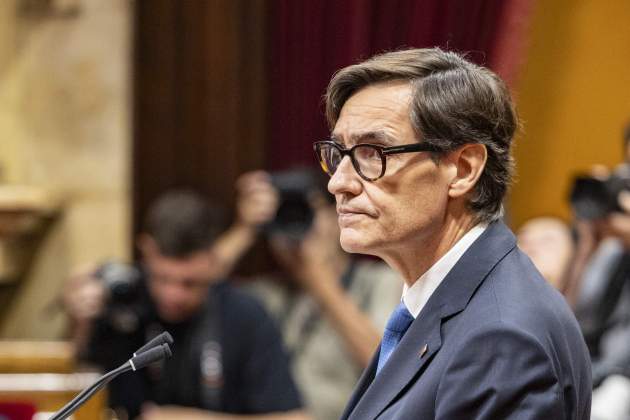
Jéssica Albiach, leader of the alternative left Comuns, expressed herself in similar terms, also believing that only an agreement between her party, the PSC and ERC can avoid a new election: "The numbers are what they are and they don't lie. Although some don't like the reality, either there is agreement between ERC, Socialists and Comuns or there is a repeat election. I ask you not to disguise reality or generate false expectations." Albiach was "optimistic" that this alliance can go ahead and, despite the discrepancies, she mentioned aspects that they share, such as the Catalan language, the amnesty, the transfer of the Rodalies rail service to Catalonia and that "the richest have to pay more". The leader addressed the other two parties to tell them that they have an "obligation in the midst of a galloping disaffection and a climate of anti-politics that feeds the parties of hatred". "It's not about blank cheques or tactics, it's about goodwill to negotiate. Mr Illa, you are the one who aspires to be president, you have the greatest responsibility to gather the majorities you need and your party are the ones who have to move the most", she warned, pointing to the housing crisis as the main priority with measures such as the regulation of short-term rentals and rooms.

Junts: The Brussels agreement is a reference to allow Puigdemont's investiture
On behalf of Junts, the president of its parliamentary group, Albert Batet, once again reclaimed Carles Puigdemont's assertion to lead the next Catalan government with a "pro-independence majority" and which, arithmetically, is only possible with an abstention from the PSC: " The results of the May 12th election make it possible for a pro-independence majority to lead the government." In this regard, Batet criticized the Socialists for trying to "delegitimize" this option: "Mr Collboni did not win the election and he is mayor with the votes of the Comuns and the PP. Sánchez did not win the elections and is prime minister thanks to, among others, the indispensable votes of Junts".
The recipe, for Puigdemont's party, is to allow an executive "of strict Catalan obedience that defends the material and national interests of Catalans without dependence on Madrid". At the same time, Albert Batet placed last year's Brussels agreement for the investiture of Pedro Sánchez as Spanish PM as the right frame of reference for this new government: "The essence of this pact allows many parties to feel comfortable with it, the PSC too, we understand. It allows us to overcome the deficits and limitations of self-government and make progress in the national recognition of Catalonia." Finally, the leader of the Junts parliamentary group admitted that "preventing new elections is a shared responsibility", but insisted that they will do "everything possible" for Puigdemont to become president: "We will work with seriousness, humility and discretion". Meanwhile, Illa again refused the possibility of abstaining: "There are no other options than a progressive pact. This is how things are, whether you like it or not."
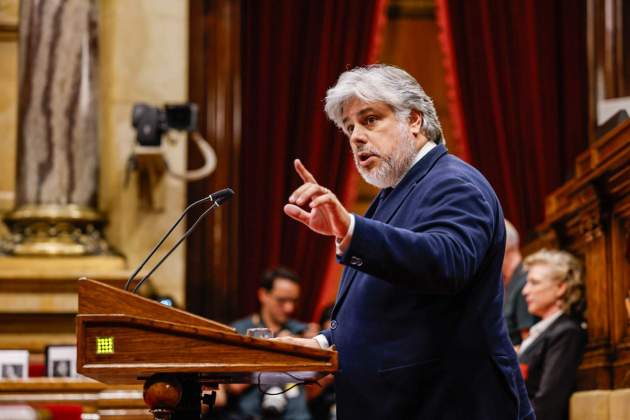
ERC revolts against the PSC and Junts
The truth is, for Salvador Illa or Carles Puigdemont to be president, both one and the other will need the votes of the Republican Left of Catalonia. The Republicans raised the tone and lashed out at the PSC and Junts for not having presented themselves today at what would have been a real investiture debate: "To be speculating on new elections is not taking the country seriously. If you hide and resist it is because of incapacity and irresponsibility", said Josep Maria Jové, who also spoke of a "lack of bravery and courage" recalling that president Pere Aragonès did submit to an investiture that he knew in advance would be a failure.
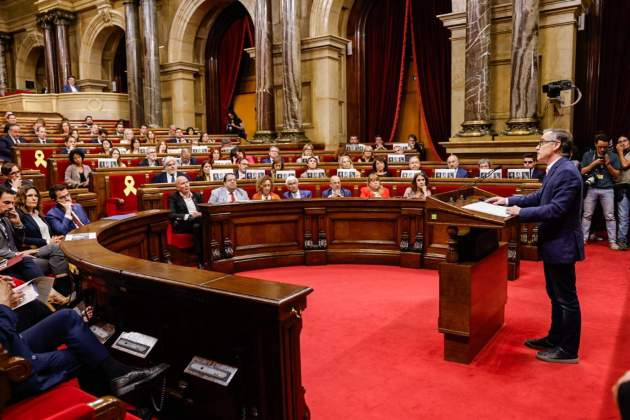
Jové remarked that there are "several majorities" that add up to a majority after the 12th May election and he wondered why the PSC and Junts are not able to understand each other: "They have a majority to spare. They spent the previous legislature adding their votes together to counter attack. If they share a socio-economic model, why don't they share a government?". Given that this pact seems impossible, the Republican leader emphasized that neither party can "take the votes of ERC for granted": "Junts can't take our votes for granted just because they are pro-independence like us; and in the PSC, they can't do so either by considering themselves leftists like us." "We will make use of our 20 deputies and we will be very demanding, do not play games with the electoral calendar for your own benefit or to put pressure on us because it is up to you to assume the responsibility", warned Josep Maria Jové, recalling that his party sets as conditions self-determination, singular financing, the strengthening and national recognition of Catalonia and the Catalan language.
In turn, the radical-left CUP also refused to guarantee its support for fellow-independentists Junts, because they have an "antisocial programme and want to form a government with the approval of the PSC": "We can only get along with those who intend to make independence into a proposal for improving the life of the majority of the population, and today that necessarily involves a rupture with the state. Junts does not propose anything in this respect," defended Laia Estrada. The CUP considers that the alliances to form a government "could change throughout the legislature" and for this reason she considered that the PSC and Junts could come to an understanding with each other after an investiture: "We will not facilitate the return of sociovergència", the traditional label for this type of alliance.
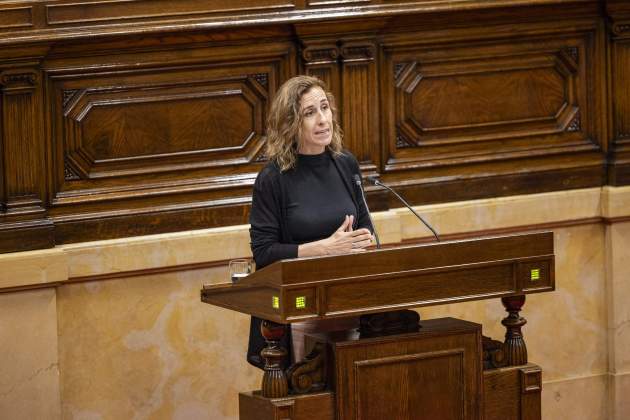
PP thunders out in opposition to the PSC
The leader of the People's Party (PP), Alejandro Fernández, lashed out at the PSC throughout his speech. Fernández affirmed that the PSC "has again deceived" Catalans and that "it is of no use" to vote for them: "They wanted to open a new era and close that of the independence process, but they continue to feed procesisme as we saw on June 10th with the Bureau of Parliament. They don't want to know anything about the Catalan constitutionalists and they apply a cordon sanitaire to us." "No one is in a position to say today whether the election will be repeated or not, but we can say that we will do the opposite to the PSC, we will not deceive anyone and we will only vote for a president who commits to ending the [independence] process here and in Madrid. Secessionism must be sent to the opposition here and the key taken away from them in Madrid", he railed.
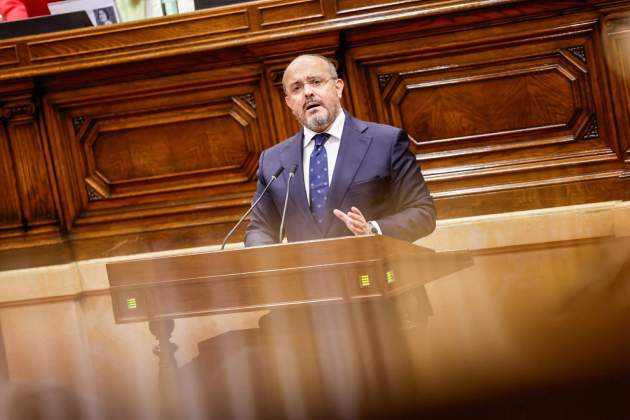
Rull warns Vox and the Catalan Alliance
For her part, the mayor of Ripoll, Sílvia Orriols, made her debut at the lectern of Parliament celebrating the arrival of her far-right Catalan Alliance in the chamber, asserting that it is the result of almost 120,000 Catalans saying they have had "enough after years of unfulfilled promises and pro-immigration policies that have torn the country apart". "We have not stood for election in order to make a Spanish nationalist or "processist" president. The era of political correctness and unique thought is over," she said. Orriols asked for "strict control of borders and the restitution of the Catalan state" as conditions for investing any candidate and urged "not to give away our resources to those who have come to live on revenue, to commit crimes and to question Western values and our cultural domain".
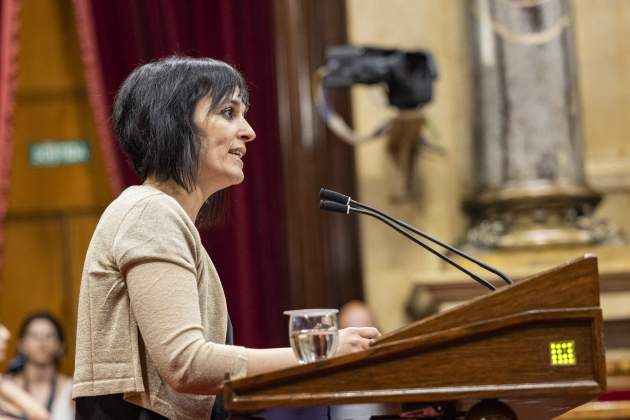
Later, Vox's Ignacio Garriga also focused his speech on anti-immigration messages: "While you hold up posters and concerns that go back 87 years" - referring to the banners displayed by various groups with images of Aurora Picornell and the Roses of Molinar - we come to talk about our compatriots who were recently killed by a Moroccan near Parliament." Faced with these two discourses, the speaker Josep Rull warned that he will not empower hate speech and that he will combat expressions that "transgress freedom of expression", referring to the jurisprudence of the European Court of Human Rights (ECHR).

